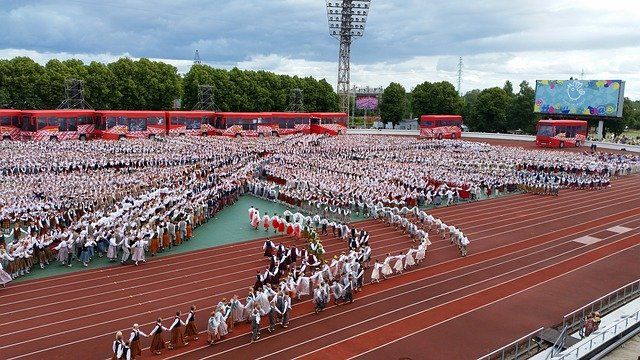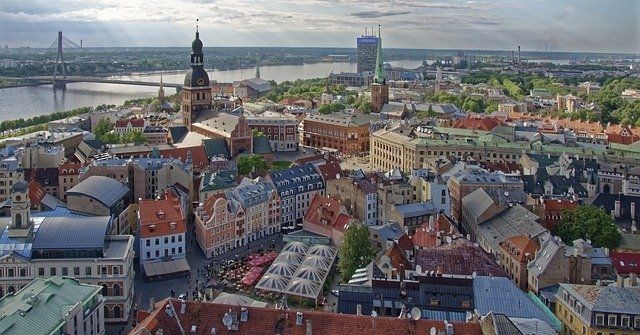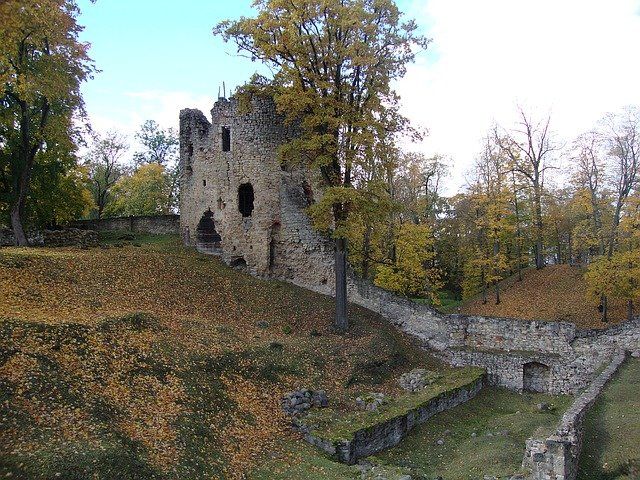
Was the human voice designed for speech or song?
This question helps us to focus on the central Baltic nation — Latvia, lying between Lithuania and Estonia, and recent winner of the Eurovision Song Contest.
Latvia is well known for its song festivals. In many ways its fight for survival, and re-emergence into the free world, has found fullest expression in song. It has a wealth of literature in the form of songs called dainas.
A massive storehouse of 1½ million songs, many of which were collected during the 19th century, provides a unique source of Latvian ancient beliefs and customs, many of them pagan, and stretching back more than 4,000 years.

Reformation not embraced
The religious ideas and ideals conveyed in these songs are still rooted deeply in the hearts of Latvians. Latvians tend to regard any ideology or worldview outside their folklore tradition as something forcibly imposed from outside.
So, from a Latvian perspective, Christianity, introduced by the Germans in the 12th century, was little less than a ploy to keep native Latvians under the yoke of foreign masters.
Even the Reformation — profoundly influential on Germans living in the Baltic cities, and impacting widely throughout Europe — did not touch many Latvians. The Lutheran church did not become the ‘people’s church’.
Few Lutheran pastors were native Latvians. Nor did the Lutheran church see a need for such leaders.

As a Balt-German baron said: ‘As my sheep do not need to know what kind of dog I find for them, peasants have nothing to do with the appointment of the clergy’!
Awakenings
However, in God’s sovereignty, the 18th century saw various awakenings among the Moravian churches in Latvia. And from the 1860s onwards, Latvian Baptist churches came into existence.
But among Latvian intellectuals there has remained the tendency to look back nostalgically to folk traditions of the past.
The best-known Latvian Baptist pastor, evangelist and church planter of the period was a man named William Fetler, who was the first student from Eastern Europe to study at Spurgeon’s College.

C. H. Spurgeon’s son Thomas said that if Spurgeon’s College had done nothing else but train a man like Pastor Fetler, its existence had been worthwhile.
Fetler witnessed firsthand the Welsh revival of 1904, and came under the influence of Holiness teaching. But, although he had sympathies with the Pentecostal movements sweeping Latvia, he never left the Baptist Church.
In the 1920s and 30s there were a number of powerful awakenings amongst Latvian Baptists and Pentecostals. Also, many Latvian Pentecostal leaders of the 1920s and 30s emerged by secession from Baptist churches.
Theological pressures
Since Latvia’s independence from the Soviet Union in 1990 the Latvian Lutheran Church has been beset by theological pressures from Western, liberal Protestantism.

The Western churches have, in turn, viewed their Eastern counterparts with impatience for not welcoming contemporary theology, even though this theology has continued to empty churches.
Today, up to 40% of the population claims to be Lutheran, although the Lutheran church has never achieved the status of a State Church. Certainly, there are pastors within Lutheranism who have experienced true conversion and who seek to preach the gospel.
Nevertheless most church growth today in Latvia is amongst Pentecostals and Charismatics.
There are excesses, and the erroneous conviction that Christ blesses, not only with every spiritual blessing in heavenly realms, but also with every material blessing in earthly realms.

Nevertheless, these churches do, at least, emphasise an experience of salvation and a real redemption from sin.
Justification by faith
Within the Baptist churches the Lord is certainly at work, but their leaders do not always teach clearly that salvation rests on far more than our act of commitment to God. Usually preachers in Latvia emphasise repentance.
Faith in Christ is referred to, but seldom explained in terms of the believer being given a right standing with God on account of the finished work of Christ. It is forgiveness, rather than justification by faith, that is stressed as the ground of salvation.
Some foreign missionaries in Latvia have shown, by their example, the importance of Christ-centred sermons. But Latvians must be helped to realise afresh that salvation has nothing to do with human effort and everything to do with the finished work of Christ.
This is the message many in this country still need to hear.






